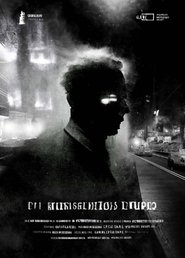Read The Eggregores' Theory (2025) Movie
Watch The Eggregores' Theory (2025) Spoiler

He does not remember much from that time. Things have faded, like the color of a painting after too much light. The only thing that bothers him is this music. It keeps popping up... He thinks he forget what it meant. All he knows, for sure, is that he cannot get it out of his head.

-
## The Eggregores' Theory: How Shared Thought Creates Real Monsters (and Maybe Saves Us)
Netflix's "The Eggregores" (a fictional show for the purpose of this article) isn't just another paranormal thriller. It delves into a complex and disturbing concept: the Egregore. Forget your run-of-the-mill ghosts and demons; this series proposes that thought, particularly collective thought, has the power to manifest tangible entities, both benevolent and terrifying. And the implications are far-reaching, suggesting that our shared beliefs can literally shape our reality.
The show centers around Dr. Aris Thorne, a parapsychologist haunted by a past encounter with an Egregore linked to a horrifying cult. He dedicates his life to understanding these entities, theorizing that they are born from concentrated emotional energy – fear, hate, devotion – fueled by groups of people. The stronger the belief, the more potent and independent the Egregore becomes.
The series unveils different types of Eggregore, each linked to a specific period or group:
* **The Cult Egregore:** Born from intense, often fanatical, devotion and ritualistic practices. These are depicted as the most dangerous, feeding on the vulnerability of its followers and manipulating them for its own self-preservation. We see this firsthand as Thorne battles the remnants of the cult that shattered his life, their Egregore now a parasitic entity draining the life force of anyone who stumbles into its sphere of influence.
* **The Urban Legend Egregore:** This type thrives on shared fear and speculation surrounding a local myth. In one episode, Thorne investigates a series of disappearances linked to a rumored creature inhabiting the city's abandoned subway tunnels. The investigation reveals that the creature's form and power are directly correlated to the increasingly vivid and terrifying stories circulating online, suggesting that the more people believe in the monster, the more real it becomes.
* **The Historical Egregore:** These are arguably the most insidious, born from enduring historical narratives and collective traumas. The show posits that these Eggregore, fueled by generations of shared emotional resonance, can manifest as repeating patterns of violence and oppression. The exploration of this concept leads to a chilling revelation: that some historical injustices aren't simply the result of individual actions, but are actively perpetuated by these lingering entities.
But "The Eggregores" isn't solely a descent into darkness. It also explores the potential for creating positive Egregore. The series proposes that shared hope, empathy, and collective action can also give rise to benevolent entities that promote healing and progress. We see this concept tentatively explored through a group of activists using meditation and visualization to combat the negative energies polluting their community, suggesting that focused intention can create a positive force.
The core message of the show is both terrifying and empowering. It suggests that we are not passive observers of reality, but active participants in its creation. Our thoughts, beliefs, and collective emotions have tangible consequences, capable of manifesting both monstrous horrors and forces for good. "The Eggregores" forces viewers to confront the responsibility we bear for the reality we inhabit and to question the power of our shared consciousness.
The final episodes leave the audience with a haunting question: can humanity learn to consciously cultivate positive Eggregore, and thus, create a better future? Or are we doomed to be forever haunted by the monstrous creations of our collective fears and traumas? The answer, it seems, lies within us, in the stories we tell ourselves and the beliefs we choose to embrace. The survival of humanity, according to "The Eggregores," might just depend on learning to think collectively, and responsibly.